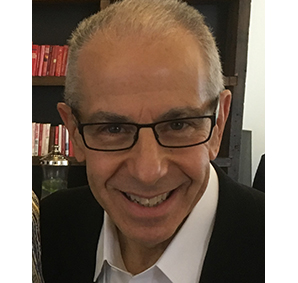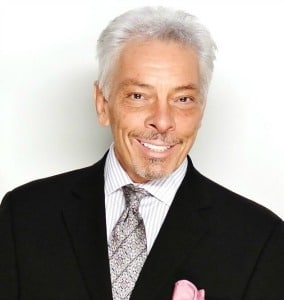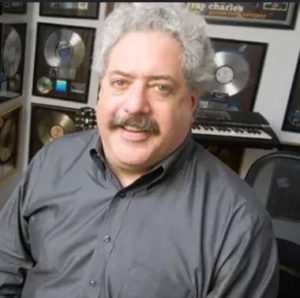
Nick Cannon is dealing with the consequences of what he said on a podcast last month. So far he’s lost TV work with ViacomCBS and his syndicated radio show is on pause. What would you do if your superstar morning show host crossed the line? Here’s some advice…
Consultant Gary Berkowitz…
The first thing is to make sure the on air personality clearly understands they cannot go “over the line” on podcasts. They are still a part of your radio station’s image and cannot turn into “someone else” when podcasting.
If you’re on the air, the same rules apply to you when podcasting. The difference is that on the air, you have formatics and time restraints. Many of these do not apply to podcasting, which makes it very appealing to radio talent. This is an area that people are listening to hear what you have to say versus playing “10 in a row with less talk..” Podcasting is an “extension of their on air persona” but….the same rules and decorum that you follow on the air, apply to you when you’re podcasting. If an on air talent goes over the line (which they most likely would never do on the air) they put themselves in jeopardy with their on air position. Each station must make their own guidelines to determine where “the line” is.

It’s important for talent to understand that yes, they can use podcasting to further develop their talent, but since they are on the air, there are some limitations.
Talent that are only podcasters (not on the air) are different. Since they are not on the public airways, to a degree, the sky is the limit to them, as podcasting is kind of like “The Wild West” to these podcast only talents.
McVay Media President Mike McVay…
It could be on-the-air, on a podcast, on social media, in public or at an appearance. Wherever it is and whenever it happens, we have to remember that words are like bullets. You cannot take them back. There isn’t one human who has never regretted saying or doing something. When you’re a personality, living in the eyes and ears of the public, the weight of your words is heavy and the ripples they create are great. What you do in the moments when it becomes apparent that there is a problem sets the course of what’s to come.
The first thing to do is have your talent hit “pause.” Tell them to do nothing. Don’t respond to a listener, a caller, a reporter, an advertiser, a civic leader and especially don’t respond to anything on social media. There needs to be a moment for everyone to take a deep breath, evaluate the situation unemotionally, and then begin to research what happened, what was said, or what action took place. Only then, once you have the facts, can you begin to determine how to react to the action of the talent.

Don’t lie. The talent needs to be truthful to you. You need to be truthful about what happened to everyone else. The coverup is always worse than the crime. The list of examples is very long. Ignore the instinct to “spin” the story. It happened. Own it. Announce what you’re going to do about it. Report it on your station. Wouldn’t you rather your audience hear it from you first, versus hearing the news on your competition?
Assess the situation. What’s the talent’s explanation for the situation? Does an apology satisfy those who were harmed, hurt or offended? Does the situation warrant therapy, a deeper dive into emersion for the talent to understand another’s life or situation, a public investigation and debate that enlightens those in need of such enlightenment, a suspension or is termination the only answer? Those offended need to know that you took the offense seriously and action was taken to rectify the situation.
There are obviously HR issues that occur, from time to time, that warrant an immediate termination. If the situation isn’t one that fails the measurement of HR, then you should consider how best to estimate the damage done to the stations image and that of the personality. Rehabilitation, be it of attitude or of ones’ education, can be much more meaningful for a radio station or network than termination. Termination shuts the door on the opportunity to correct the wrong.
Encourage the talent to become involved in the community, to meet with and learn from those who were offended, to educate others to discourage them from making a similar mistake and be remorseful. Truly remorseful. If your talent can “walk the walk” and remain committed to such change, then you may find that they become a great advocate for your radio station.
One more thing … none of this is a promo. Let your talents actions, and those of the station, speak for your company.
Lee Abrams
A podcast for a hit morning personality should be an extension of what they do on the air. Held to the same standards that the station expects, as the podcast is in some ways like a personal appearance where the content of it will reflect on the station’s image and pov.

This doesn’t mean sanitized, but Is another prong in the personality’s marketing and exposure strategy. If the personality is left, right, shocking or whatever, those qualities are the expectation and the podcast needs to reflect that though perhaps in a more expansive way
If the personality crosses the line on his or her podcast then the same actions should be taken as if they were on the air, again based on the flexibility of the podcast which offers the personality to expand, and maybe be a little looser with language. But the bottom line is that wherever that personality is employed, it reflects on his or her anchor position. As podcasts are increasing in popularity for radio talent, it’s still the on air prong that is home and wherever or whatever the personality delivers, it needs to be in harmony with the standards of the station.






Part of the problem is this particular talent has multiple deals with several companies. These consultants are offering suggestions to companies who own and control all of the platforms of their talent. That was not the case here. He has a local radio show with one company, a TV show with another, a syndicated radio show with a yet another company, and a podcast that he does with someone else. So who is responsible? The talent. So anyone who deals with an independent talent, who controls the rights to their platforms, has to be sure it’s in the contract that anything said on one platform can affect the others, even when the company doesn’t own the other platforms. The talent has to know there are consequences to what he says, regardless of the platform.
Station managers and program directors need to quit being such cowards.
Not only is milquetoast boring, it is also pointless. Why would anyone want to listen to the same drivel they can hear everywhere else?
One side of the political and culture war is afraid of debate. They seek to censor, silence, and destroy anyone who expresses a differing opinion. And that is disgraceful.
“Whoever would overthrow the liberty of a nation must begin by subduing the freeness of speech.” – Benjamin Franklin